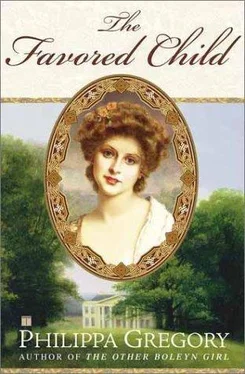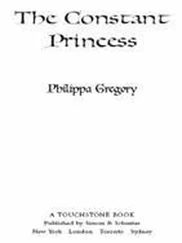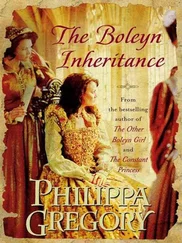He did refuse me.
I buried my pride and told him I thought Ralph Megson wrongly accused and that I should like to send him some money to pay for a lawyer. Richard looked at me with a sparkle in his eyes as though I had said something most extremely funny.
‘Oh, no, Julia,’ he said, his voice very warm and indulgent. ‘Most certainly not.’
The days got colder, and it was grey when I awoke in the mornings and dark by dinner-time in the afternoon. I did nothing to help Ralph Megson in a prison far away in London. Jenny Hodgett told me they had put their savings together in the village and asked Dr Pearce to send them to him in London. Dr Pearce, torn between his horror at law-breakers and murderers and his pity for the distress of Acre, added to the little fund on his own account, and contacted his own cousin and asked him to see Ralph in gaol and keep the fees low.
I knew then that the time I had seen was here, the time when Ralph would not be able to help me and I would not be able to help him.
I was very lonely.
In autumn the countryside is very beautiful. A Wideacre autumn is a season when the world seems full of colour and you cannot believe that the bright leaves could ever fade. The hedgerows are full of glossy berries: the tulip-shaped scarlet hips and haws, the fat black bobbles of blackberries. The hawthorn trees are dotted with berries of a deep, dark redness, and the ivy flowers with waxy green delicate bouquets.
As the chestnut leaves started falling in great yellow fans on to the drive, I took to walking in the woods opposite the Dower House, going quite far in random sweeps, but staying under the trees as if they could give me some sort of comfort which the empty common lands could not.
Sometimes on my walks I would back against a tree and look up at the blue sky patterned all over with the copper, yellow and orange leaves. I would eat a handful of blackberries or crack beech-nuts open and eat the little sweet kernels. I would put my hands behind me and feel the rough bark of the tree and try to hear the beat of the land. But I could hear nothing at all.
I tried to count my blessings, but something must have been wrong with my arithmetic, for I could not make it come right. I knew I loved Richard with a long love with its roots in my earliest childhood and its flower in my belly, but I could find no happiness in knowing that we were at last where we had longed to be: a married couple on Wideacre.
I thought that was because Wideacre felt like my familiar home no more. Acre had changed already, and would change again when Richard was out on the land with the ploughing teams. I would be indoors with the new baby so there would be no smiles for me, and no calling of ‘Speed the plough!’
But I knew also that there would be no smiles for Richard. The special magic of Wideacre – that masters and men could try to work together in unity – had quite gone. Never again would the fastest reaping gang in the country celebrate their triumph in the Bush at Acre. Next year there would be hired hands, paid labourers. Never again would they stand waist-deep in their own corn and laugh for joy at the richness of the land which had grown such a crop, and boast of their own skill in cutting it.
Acre was different, and I was different too.
I was mourning my mama still. Even now it had been less than two months. I was haunted by her in dreams which made me happy while I was asleep, but made me weep and weep when I awoke. I dreamed once that I was sitting before my mirror and pinning on my hat when she walked into the room as though she had been out in the garden picking flowers. In my dream I said, ‘Mama! Oh, Mama! I thought you were dead!’ and she said with such a sweet smile, Oh, no my darling. I’d never leave you in such a pickle!’ I was so persuaded that she was alive and loved me still that I could not believe it when I woke in the quiet early-morning house and remembered she would never call me her darling again.
I dreamed she walked into the parlour and asked me where her clothes had gone. I stammered that I had given them away because I had thought she was dead. Then she laughed, a clear easy laugh, and called out of the window to John to share the joke. I gazed from one bright laughing face to another and was as certain as I could be that there had been some foolish mistake and my lovely mama was still alive.
It was pointless for me to try to accept her death. Grandmama Havering urged me to come to terms with it and put it behind me. I smiled vaguely and did not reply.
I did not try to accept it, but neither did I try to escape it. I simply could not believe that I would never see her again. And, although I often wept for her on my long walks and found that I was crying from longing for her hand on my forehead, her smile and the love in her voice, I could think two sad, silly thoughts at once: that I would never see her again, and that it was not possible that she could have left me for ever.
I was very lonely.
She had been my companion and best friend, and I had never noticed before how the autumn kept us so much indoors. When it grew colder and my walks grew shorter, I found I was spending most of the days in the parlour. Sometimes I would sit before the roaring fire and try to be glad that I was inside warming my toes, and sometimes I would sit in the window-seat and press my face to the glass and watch the rain sluicing down the cold windows, and wait for dusk, and wait for night and sleep, and then lie sleepless and wait for morning.
As I grew heavier and more and more tired, I was not glad of the rest, but impatient with this lumpish body which kept me isolated in the little room in the little house while Richard could ride down to Acre or up on the downs, or across the common and drop into any tenant’s house and take a pot-luck dinner.
He was popular only with our wealthy neighbours. The poorer farmers saw their interests as at one with Acre. They depended on wage-work to supplement their farming and they needed Wideacre to be a generous employer. They bought much wheat from us, and fodder and straw; and they needed Wideacre to sell at a fair price in the local market. But the bigger farmers nearby were happy to farm hard and sell high, they liked the lordly way Richard condemned ‘new-fangled levelling notions’.
There was always a place ready for the handsome young squire at their tables, and Richard came home from these dinners in good humour, tipsy with port, flattered by deference, bursting with charm and conceit.
He had grown so strong since he had become owner of Wideacre. No one had been able to stand against him, and the complaints about him in the village were so soft that only I could hear them.
He had grown so confident. I, who used to laugh at the people who called me Squire Julia, had become a fat tired woman who sat alone in her parlour and longed for her mama who was dead, and for her friend who was in a London gaol, and feared the birth of her child as another Lacey to run the land.
But I had one friend yet.
I thought of him. I had thought of him almost daily since the death of my mama. I had thought of him without shame. I was not thinking of a man as a married woman should not think. I was thinking of a young man who was part of my careless childhood when Mama had been happy, and I had been happy, that short season in Bath.
I was thinking of James.
He was young, he was wealthy, and I knew he would do me a favour if I asked him.
I left the fireside chair and lit one of the candles at the mantelpiece. I went to the library and opened the drawer for paper, an envelope and sealing-wax. Then I took pen and ink and went back into the parlour, the women’s room of the house. I had thought the letter would give me some trouble to write, but I wrote it as easily and as simply as I had talked to him all those months ago when we had driven and walked and danced in Bath.
Читать дальше
Конец ознакомительного отрывка
Купить книгу












